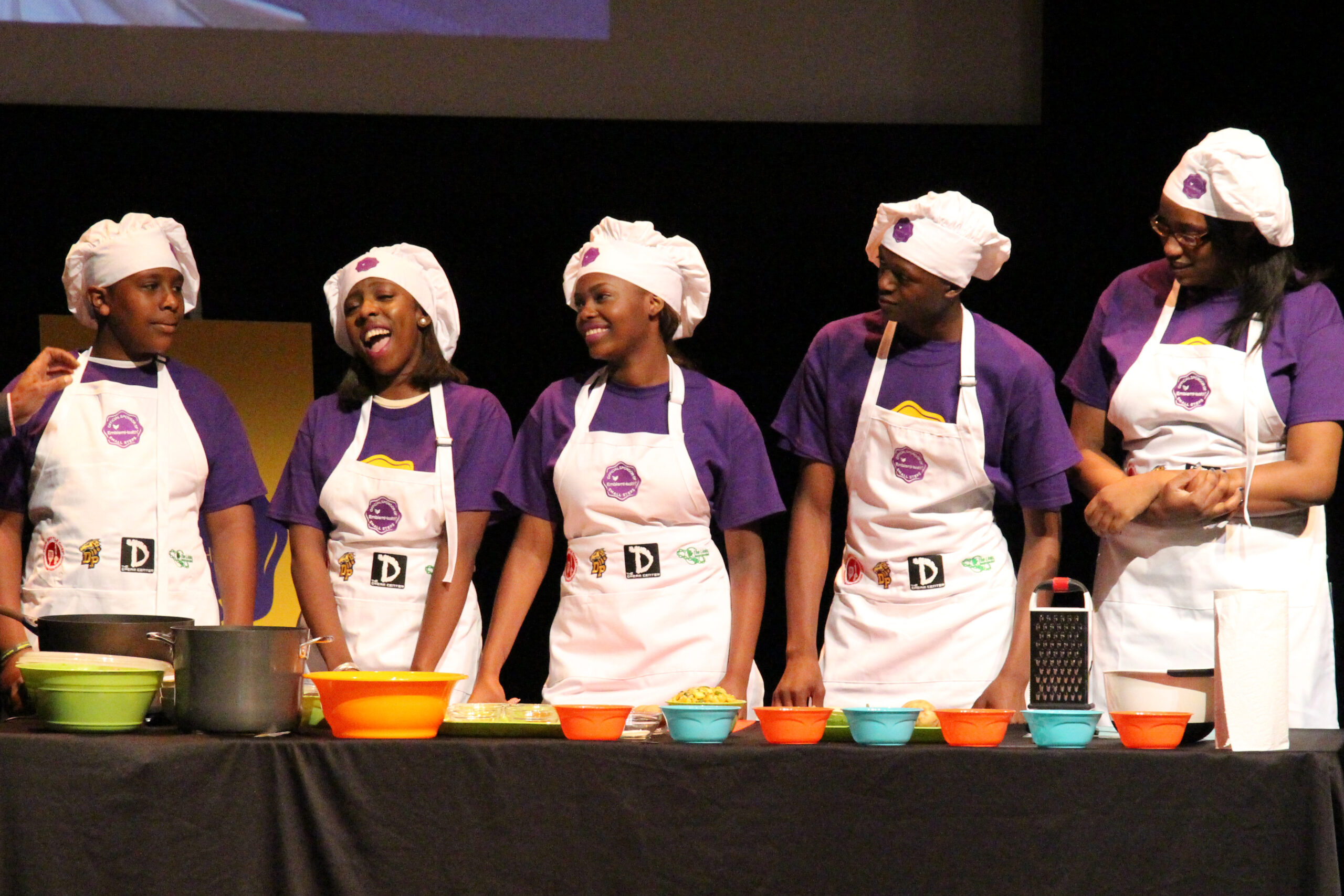Building the Evidence Base for Teaching Kitchens: Demonstrating Sustained Effect

Having the funding and ability to follow participants in Teaching Kitchen (TK) interventions over time is extremely difficult and rare. Most programs are working off of philanthropic grants with shorter time frames and such funding sources are infrequently renewed. Hence just keeping a TK effort going is tough enough, let alone obtaining IRB approval and a funded mechanism to stay connected to participants over multiple years to determine whether initial success with new food behaviors changes are sustained.
As 25 year veterans in the TK space, and disseminators of our FamilyCook Productions programs into multiple settings across the US through training program facilitators, we have been equally challenged to assess any long term effects of our interventions. That’s why our latest study published this month in Health Education Journal is such a source of pride and accomplishment. This study followed 30 alumni of our Teen Battle Chef program in NYC into young adulthood. Because FamilyCook in NYC offers some job opportunities and leadership extensions for our partner high schools beyond the leadership development their schools offer, FamilyCook has a connection with many youths who stay connected to our team to learn about jobs and share their career milestones.
This connection allowed us to collaborate with Teachers College at Columbia University to design and obtain IRB approval for our first ‘sustained effect’ study. By recruiting 30 young adults who had participated in TBC in 14 different schools across 4 boroughs, we already eliminated some participant selection bias. Our social media, email and texting campaign succeeded in enrolling a cohort of TBC alumni who were a minimum of 1 year post and a maximum of 7 years post program.
Our study is a mixed-methods design, with semi-structured questions asked as part of an interview as well as open ended questions to understand why youths felt the program positively influenced their food behaviors. In addition we also inquired about their perceived influence on their friends and family, as this is a program goal. No funding was received for this study. We relied on dietetic interns,the generous support of co-authors Drs. Pamela A. Koch from Teachers College and Jennifer Utter of Bond University in Australia, who are equally keen to build this evidence base.
With patience and dedication to understanding the effects of TK interventions more deeply, other organizations whether they be hospitals, SnapEd funded agencies or schools can follow our methodology and contribute to building the TK evidence base. The exciting results that demonstrated 27 of the 30 had sustained the positive behaviors gained from participating in Teen Battle Chef. Additionally, the study details important insights into how and why the behaviors have continued and the extent to which the radiating effect of TBC in up to 10 family members and friends has also led to continued food behavior improvements in participants’ spheres of influence. Lastly but hardly least in importance, the actual reasons why participants felt participation in TBC directly influenced their current food behaviors are consistent with FamilyCook’s subsequent research conducted after this study, that confirmed 10 Experiential Drivers on Behavior Change. In particular skill development, peer influence, collaboration and palate development were especially key to ensure new behaviors became a sustained lifestyle change.
